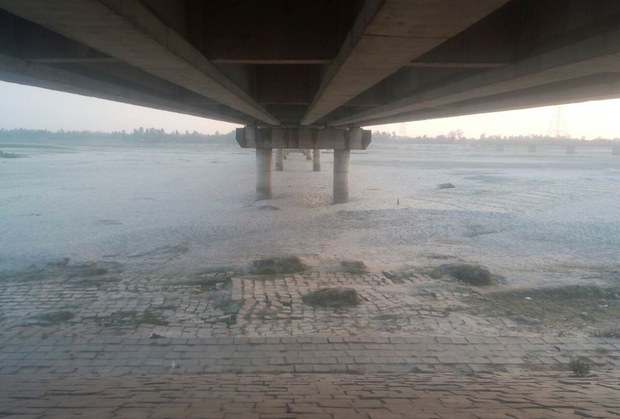Bangladesh Waiting for India’s OK on Ganges Dam Project
2017.03.02
Dhaka and Kolkata
Without consent from neighboring India, authorities in Bangladesh cannot start a Ganges River dam project to increase water flow during the dry season to one-third of their country, including the Sundarbans.
Four years ago, the Water Development Board of Bangladesh completed a feasibility study calling for the dam at the Pangsha point, about 200 km (124 miles) downriver from the Farakka dam in West Bengal, India. The main branch of the Ganges is known as the Padma River on the Bangladeshi side of the border.
Officials said a technical team from India’s central government examined the study in October 2016 and agreed with Bangladesh’s construction plan.
“We have provided all papers to the Indian government. Their technical team agreed with us that the project would be beneficial to both countries. But we have yet to get any consent from them,” Motaher Hossain, chief of the Ganges dam study project told BenarNews.
“Our preparation is such that we can start implementing the project tomorrow if we had India’s approval,” he said.
Officials said the Sundarbans, the world’s largest mangrove forest, depends on water from the Ganges. The dam would reinvigorate rivers in the southwestern Bangladesh and some parts of West Bengal in India.
Water flow in Bangladesh downriver from the Farakka dam has fallen drastically since 1975 when India commissioned the project. Hydrological data show water flow at the Hardinge bridge point in Bangladesh was 50,400 cubic feet per second in 1967, falling to only 9,698 cubic feet per second in April 1993 after India started diverting water at Farakka.
“At the Joint Rivers Commission meetings, India used to tell us that Bangladesh could not utilize Ganges water as it goes to sea. But now they are not giving consent to construct the dam for storing water in our territory,” Hossain said.
He said he hoped India’s central government would push the West Bengal state government to sign off on the project.
No reply
The India-Bangladesh joint rivers commission sent a reminder letter to the Indian government last month, a commission member who asked to remain anonymous told BenarNews.
“But no reply came. We understand the West Bengal state government would oppose the Ganges dam. We fear the Ganges dam can hang in the balance like the Teesta water sharing treaty,” he said.
Under the Indian constitution, water is a state issue so the central government cannot get involved if the West Bengal government opposes the project. In 2011, the Indian government could not sign a treaty to share water of the Teesta River because of the West Bengal government’s opposition.
Kaushik Chatterjee, secretary of state Irrigation and Waterways Department in West Bengal, declined comment.
Meanwhile, a West Bengal government official who asked to remain anonymous said the state’s chief minister, Mamata Banerjee, informed the central government of its opposition. West Bengal officials fear that the state could face flooding if the dam is constructed.
Indian Water Resources Secretary Amarajit Singh tried to send experts to West Bengal to discuss the project with state government leaders, but the chief minister turned down the offer.
Bangladesh officials said the issue could be discussed when Bangladesh Prime Minister Sheikh Hasina travels to India in April.
Solution
“The Ganges dam is the solution for the water crisis during the dry season. This project will increase flow of some rivers in West Bengal,” environmentalist Ainun Nishat told BenarNews. “Moreover water flow will increase in some rivers of West Bengal.”
Additionally, stored water because of the dam could be used during dry season.
“Fish production in the Ganges will increase, too,” Nishat said.








